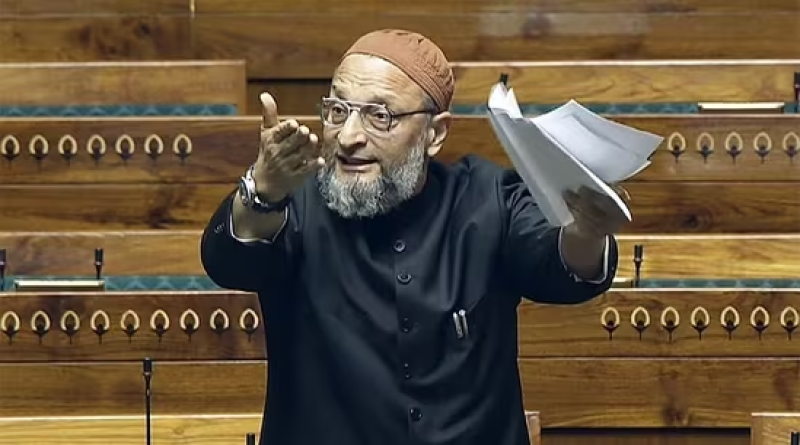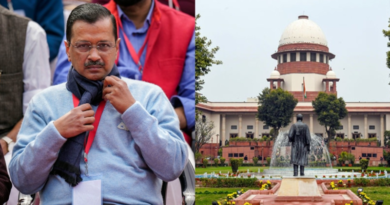‘Why Hindus kept out…’: Asaduddin Owaisi slams Uttarakhand’s Uniform Civil Code bill

New Delhi: Asaduddin Owaisi criticized the Uniform Civil Code Bill introduced in Uttarakhand, saying it is essentially a “Hindu code” applicable to all communities. Questioning the uniformity of such laws, he pointed to the exemptions given to Hindus and tribals. Owaisi argued that the code imposes a separate religion and culture on Muslims, violating their fundamental rights.
“The Uttarakhand UCC Bill is nothing but a Hindu code applicable to all. First of all, the Hindu Undivided Family has not been touched. Why? If you want a uniform law for succession and inheritance, Hindus should be left out of it. Why is it kept in place? Can a law be made uniform if it does not apply to the majority of your state?” He has written.
He criticized the focus on issues like bigamy, halala and live-in relationships while ignoring the exclusion of the Hindu undivided family.
Owaisi stressed that if tribals are excluded from the code it cannot be called uniform, raising concerns about the constitutional and legal implications of such exclusion.
He further argued that the Bill contradicts existing laws such as the Shariat Act, Hindu Marriage Act, SMA and ISA, and questioned the need to make the voluntary UCC mandatory.
Owaisi also criticized the timing of the introduction of the bill, pointing to the damage caused by floods and agricultural damage amid Uttarakhand’s financial challenges.
The BJP had promised to implement the Uniform Civil Code in its 2022 manifesto for the Uttarakhand elections. The proposed law aims to replace religious personal laws governing marriage, relationships and inheritance, among other aspects.
The bill excludes the hill state’s small tribal community and makes registration of live-in relationships mandatory. It also addresses the legitimacy of children born from such relationships.
Without mentioning them directly, the Bill effectively bans practices such as polygamy and ‘Halala’ among some Muslims, allowing marriages through different rituals followed by different communities.
Muslim bodies including the All India Muslim Personal Law Board and Jamiat Ulema-e-Hind have opposed the Uniform Civil Code, citing concerns about religious freedom and adherence to Sharia law.
- Google Unveils SignGemma: AI Model Translates Sign Language into Real-Time Text
- Busy domestic season in Indian cricket: Much-awaited series for women’s and men’s teams from September to December 2025
- Bosch Power Tools launches new Hand Tools range for professionals, artisans and home users
- Apple is going to make a big change in the naming of its operating systems: Announcement of iOS 26, macOS 26 and other versions possible at WWDC 2025
- Prime Minister Modi wished Nitin Gadkari on his 68th birthday, praised his contribution to India’s infrastructure






Pingback: שרת אחסון אתרים
Pingback: ทางเข้า lucabet
Pingback: ppf
Pingback: ทัวร์เวียดนาม
Pingback: รับสร้างบ้าน
Pingback: adderall price spain
Pingback: altogel
Pingback: fear of god essentials
Pingback: WINBER รวมหวยไทย หวยต่างประเทศ แทงหวยออนไลน์ 24 ช.ม.
Pingback: ทัวร์ยุโรป
Pingback: REC1688
Pingback: เว็บสล็อตตรงไม่ผ่านเอเย่นต์ เว็บแท้ จากยุโรป
Pingback: แว่นตาโปรเกรสซีฟ
Pingback: เกม Free Fire
Pingback: wing1688
Pingback: fun guy gummies
Pingback: raamhorren draai kiepraam